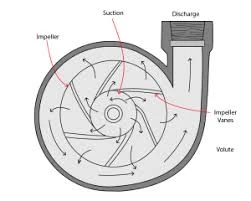Mobile:+86-311-808-126-83
Email:info@ydcastings.com
pipe close cap
Understanding Pipe Close Caps A Vital Component in Piping Systems
In various industries, from oil and gas to manufacturing and construction, effective piping systems play a crucial role in ensuring the seamless flow of fluids and gases. One essential component often utilized in these systems is the pipe close cap. This article aims to explore the importance, types, and applications of pipe close caps.
What is a Pipe Close Cap?
A pipe close cap, as the name suggests, is a fitting used to seal the end of a pipe, preventing the escape of fluids and gases. It is designed to serve as a protective covering, ensuring that the contents within the pipe remain contained and uncontaminated. This component is often crafted from various materials, including stainless steel, PVC, and carbon steel, depending on the application's requirements.
Types of Pipe Close Caps
Pipe close caps come in various designs and materials to cater to different industries and applications. The most common types include
1. Threaded Caps These caps are designed to connect to threaded pipe ends, providing a secure seal that can withstand pressure. They are frequently used in high-pressure systems and are easy to install and remove.
pipe close cap

2. Welded Caps Welded caps are permanently attached to the end of a pipe using welding techniques. This type of cap is ideal for high-stress environments where a robust, leak-proof seal is essential.
3. Slip-on Caps These caps fit over the pipe's end and are typically used for temporary closure or when a tighter seal is not required. They offer flexibility in applications where easy access to the pipe's interior is necessary.
Applications of Pipe Close Caps
Pipe close caps are integral to numerous applications across various sectors. In the oil and gas industry, they are used to seal off pipelines during maintenance or when sections are out of service, preventing leaks and environmental hazards. In water supply systems, they help maintain pressure and ensure the purity of the water by keeping contaminants out.
In construction, pipe close caps are used in HVAC systems, plumbing applications, and industrial processes where the containment of fluids is critical. Their versatility makes them suitable for a wide range of temperatures and pressures, depending on the material selected.
Conclusion
Pipe close caps may seem like a small component in the grand scheme of piping systems, but their role in maintaining safety, efficiency, and integrity cannot be understated. As industries continue to evolve, the demand for reliable piping solutions will only grow, making it essential to understand the importance of components such as pipe close caps in developing robust and secure piping systems. Whether in high-pressure environments or regular plumbing applications, these caps are indispensable in today's industrial landscape.
-
Why Is Choosing the Right Motor Housing Critical for Engine Performance?NewsJul.18,2025
-
Which Impeller Types Best Optimize Your Pump’s Efficiency?NewsJul.18,2025
-
Optimize Maintenance Efficiency with Durable Oil Catch SolutionsNewsJul.18,2025
-
Maximize Pump Performance with Precision-Engineered ComponentsNewsJul.18,2025
-
Elevate Industrial Flow Systems with Precision-Engineered ComponentsNewsJul.18,2025
-
Boost Durability and Functionality with Precision Power CastingsNewsJul.18,2025











